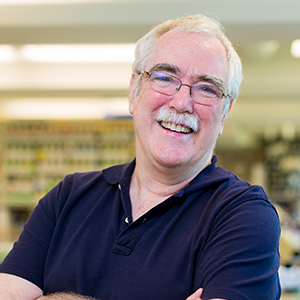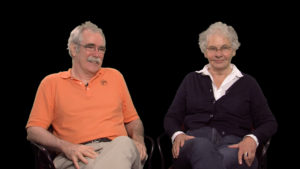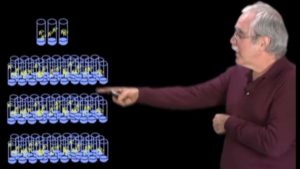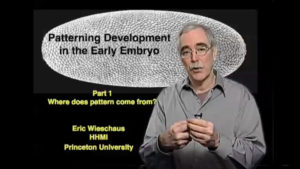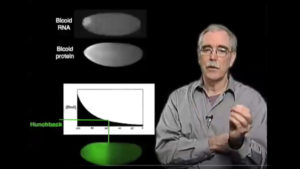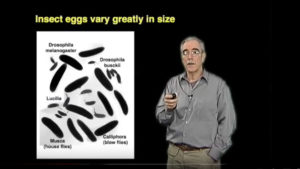I grew up in Birmingham, Alabama and did my undergraduate work at University of Notre Dame. During my graduate work at Yale University, the professor I was working with (Walter Gehring) decided to return to his home country of Switzerland and I followed him and completed my Ph. D research in Basel, Swizterland. After doing postdoctoral work in Zurich, I took my first job as an independent scientist at the EMBL in Heidelberg.
There I worked with Christiane Nüsslein-Volhard on massive saturation mutagenesis experiments to identify the genes responsible for Drosophila embryonic development. That work was awarded the Nobel Prize in Physiology/Medicine in 1995. Since 1981 I have taught at Princeton University. I am married and have three daughters.
Part 2: Dr. Wieschaus is a Professor of Molecular Biology at Princeton University and a Howard Hughes Medical Institute Investigator. Wieschaus and Nusslein-Volhard (together with E.B. Lewis) were awarded the Nobel Prize in Medicine or Physiology in 1995 for the experiments he describes in his talk. His lab continues to study embryonic development using Drosophila as a model system.
